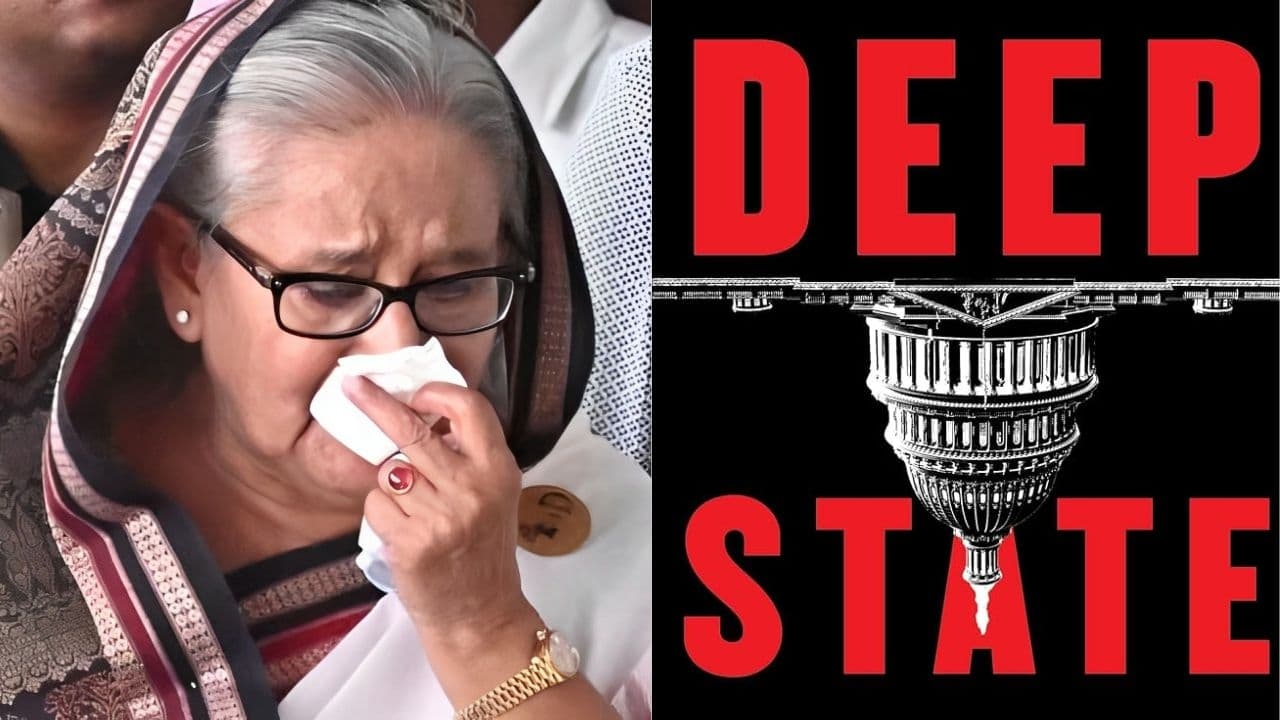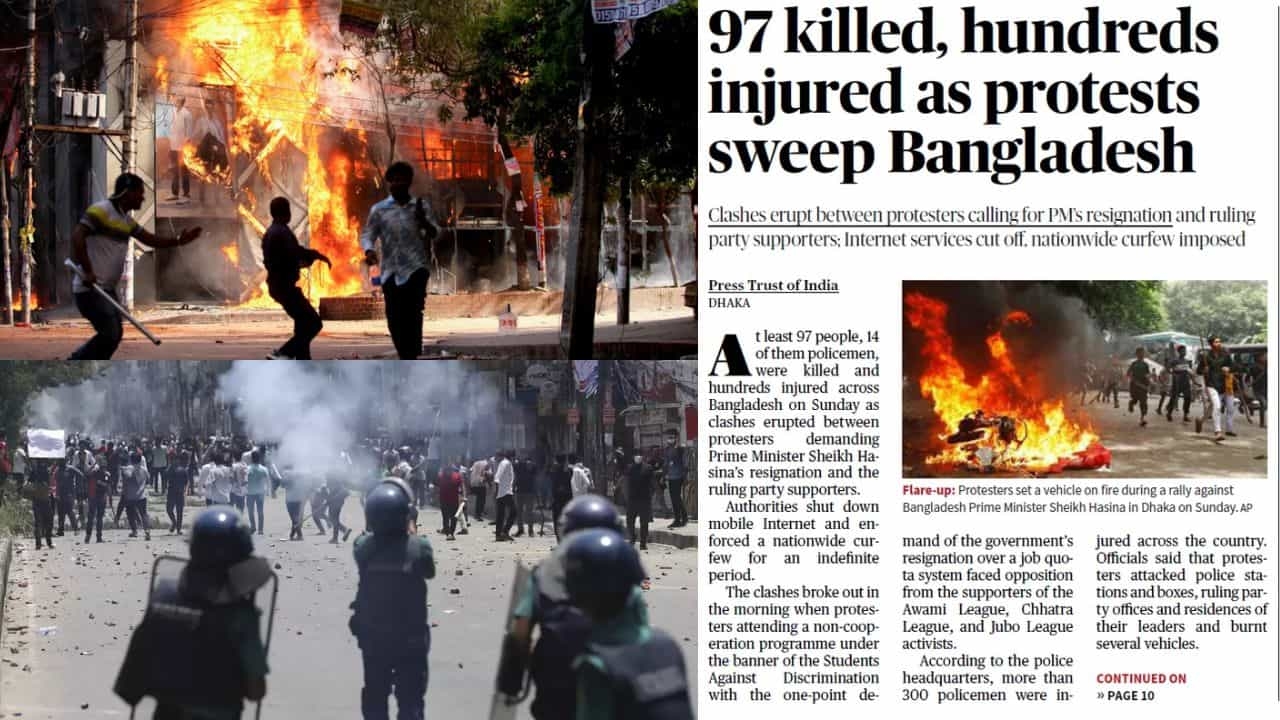How the Deep State Removed Sheikh Hasina From Bangladesh
It is clear that it was a ‘well choreographed’ intervention by the Deep State to restructure Bangladesh’ political architecture aligned with the Deep State"s broad geopolitical context.
Total Views |

Bangladesh Prime Minister Sheikh Hasina announced her resignation and fled the country after widespread demonstrations were taking place. But this upheaval is nothing like an organic public rebellion. It is clear that it was a ‘well choreographed’ intervention by the Deep State to restructure Bangladesh’ political architecture aligned with the Deep State's broad geopolitical context.
After fifteen years in power, Sheikh Hasina was becoming increasingly unpopular for the controversial policies of her government and its allegations of autocracy. What started as protests over quotas for government jobs has broadened into an anti-government movement. That changed quickly as thousands of protesters overran her official residence and forced her to flee Bangladesh.
The "Deep State" refers to a supposed network of influential elites, which encompasses the intelligence agencies, the military leadership, and influential bureaucrats who are allegedly working behind the scenes to manipulate political events. As for Bangladesh, what motivates this web of intrigue is multifaceted.
Situated right next to India and just a stone's throw from China, Bangladesh's geographical position makes this nation one of the most critical focal points for regional power dynamics. Under her leadership, Hasina was likely to build even stronger relationships with China, a rather enthusiastic investor in infrastructure and the defence sector.
The Deep State viewed this blossoming relationship as troubling since it had to balance China's influence in South Asia. The Hasina government had rebuffed a previous U.S. offer to include Bangladesh within the Quad, a strategic grouping that also includes the United States, India, Japan, and Australia.
At the centre of this geopolitical chess game is Donald Lu, the U.S. Assistant Secretary of State for South and Central Asia, who is known as an expert on regime change. Lu's visits to Bangladesh somehow coincided with tectonic changes in Bangladeshi politics. His sit-downs with opposition leaders and civil society members were reportedly aimed at undermining Hasina's government and paving the ground for a more U.S.-friendly regime.
The strategy that was adopted to take down the Hasina government was pretty much a copy of all the other regime changes that were manipulated by the Deep State during the flowering of the Arab Spring and, much earlier, the Orange Revolution in Ukraine. Disinformation campaigns about Hasina as an agent of India and a suppressor of democracy were run with the people to enrage them and galvanise opposition movements.
With Hasina's exit, Bangladesh enters a period of deep uncertainty. Taking cue from this situation and at the helm will be the military, now led by General Waker-uz-Zaman, to keep order and possibly preparing an interim government. He promised an investigation into the violent crackdowns on protesters and vowed to bring those responsible to justice.

The power vacuum that Hasina has created has further accentuated the existing rifts within Bangladesh. This can be inferred through the increasing cases of violence against minorities, particularly Hindus, which further opens up many questions regarding human rights violations and social cohesion. Instability in Bangladesh will also turn into a security threat for neighbouring India, with which it shares deep historical and strategic relations.
Developments in Bangladesh are closely watched by India and China, key players in South Asian geopolitics. India, in particular, is wary of a U.S.-backed regime that could alter the regional balance of power. Hasina's government had been a reliable ally to India, historically speaking, on counter-terrorism efforts and economic projects. Her exit thus views with apprehension in New Delhi.
The resignation of the Prime Minister, Sheikh Hasina, and her flight from Bangladesh is a landmark in the country's political history. While it was mass protests and popular anger that seemed to have brought her down, the activities in the background of the Deep State and international actors Donald Lu point towards how much more complex a narrative lay at the bottom.
The implications of this tumultuous period on regional stability and geopolitical alignments will thus be fully realised for Bangladesh as it moves through the Long Shadow of the Deep State. In fact, the intricate play of local discontent with an international strategy underlines how brittle political sovereignties can stand in the face of global power struggles. Sheikh Hasina's ouster was a grim reminder of how external influences can shape the destiny of nations, often having far-reaching consequences for the people and neighbours.
Article by
Shomen Chandra
Sub Editor, The Narrative


